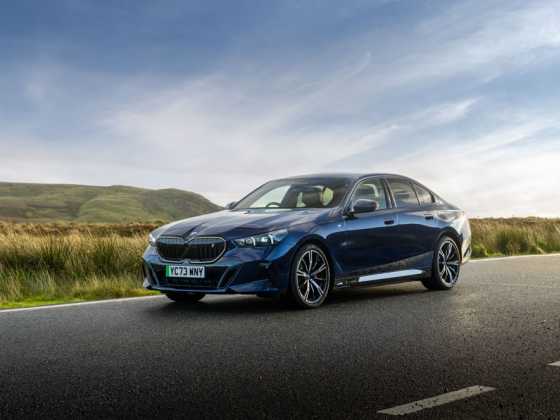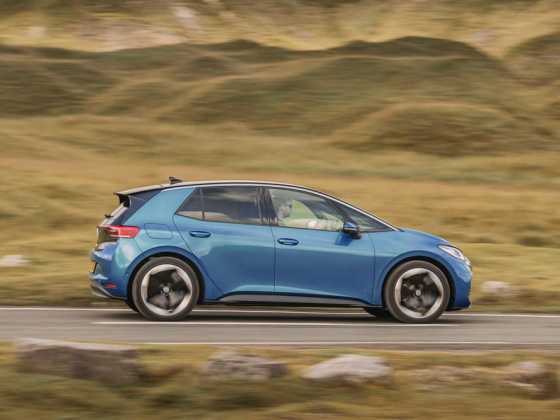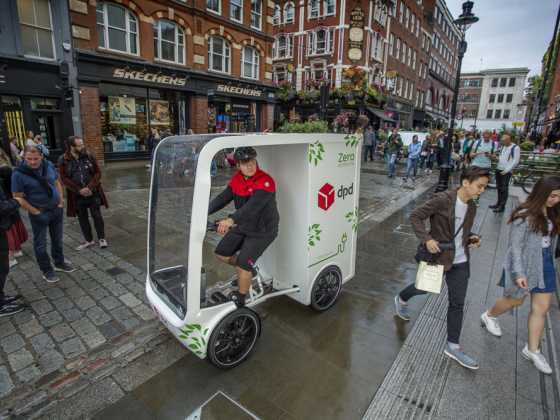Funding schemes for electric vehicle adoption

Cost is often cited as a barrier to electric vehicle adoption. To help with this, the government has various funding schemes in place. We summarise what grants are available and what they cover.
The United Kingdom reached its millionth battery electric car sales milestone in January 2024, according to figures from the Society of Motor Manufacturers and Traders (SMMT).
What’s more, the UK now has a legally binding zero emission vehicle (ZEV) mandate in place, which requires 80 per cent of new cars and 70 per cent of new vans sold in Great Britain to be zero emission by 2030.
It’s well reported that fleets are mainly driving this transition to electric vehicles.
In March 2024, the SMMT showed that registrations of battery electric vehicles rose by 3.8 per cent, with only fleets showing any volume growth.
However, many organisations have not yet begun the move to electric vehicles, or have started with the ‘easy wins’ and are now moving on to the more complex fleet electrification scenarios.
One of the main barriers to fleet electrification is the upfront costs involved, even when whole life costs are better than with ICE vehicles. And installing complex workplace charging can be costly, especially if you have to get a grid connection upgrade.
In acknowledgement of this, the government has various funding schemes available.
Plug-in vehicle grant
The plug-in vehicle grant remains in place for taxis, motorcycles, vans, trucks and wheelchair accessible vehicles. Buyers do not apply for the grant, it is offered as a discount in the purchase price by the seller.
The grant for small vans applies to vehicles that are less than 2,500kg gross vehicle weight, have CO2 emissions of less than 50g/km and can travel at least 60 miles with no emissions.
The grant will pay for 35 per cent of the purchase price for small vans, up to a maximum of £2,500.
The grant for large vans meanwhile is for vehicles that are between 2,500kg and 4,250kg gross vehicle weight, have CO2 emissions of less than 50g/km, and can travel at least 60 miles without any emissions at all.
The grant will pay up to a maximum of £5,000.
The grant for taxis can be used on vehicles with CO2 emissions of less than 50g/km that can travel at least 70 miles without any emissions at all, such as the Dynamo Taxi and LEVC TX. The grant will pay for 20 per cent of the purchase price for these vehicles, up to a maximum of £7,500.
The grant for small trucks is for vehicles that are between 4,250kg and 12,000kg gross weight, with CO2 emissions of at least 50 per cent less than the equivalent conventional Euro VI vehicle that can carry the same capacity and can travel at least 60 miles with no emissions.
The grant will pay for 20 per cent of the purchase price, up to a maximum of £16,000.
The grant for large trucks is up to £25,000. To be eligible for a grant, the vehicle must be heavier than 12,000kg, have CO2 emissions of at least 50 per cent less than the equivalent conventional Euro VI vehicle that can carry the same capacity, and be able to travel at least 60 miles without any emissions.
The workplace charging scheme
The Workplace Charging Scheme (WCS) is open to businesses, charities, public sector organisations and small accommodation businesses, such as hotels or campsites with 249 employees or less. Funding for this is confirmed until 31 March 2025.
The grant covers up to 75 per cent of the total costs of the purchase and installation of EV chargepoints and is capped at a maximum of £350 per sockets and 40 sockets across all sites per applicant.
Applicants must have dedicated off-road parking that is clearly associated with the premises, or permission from the landowner if they don’t own it. Applicants should have their site surveyed by an installer before you apply for the grant.
Organisations must provide evidence that the parking is for their staff or fleet, not for customer use, and there must be parking spaces that are suitable for chargepoint installations.
All chargepoint parking must be designated to you, although the rest of the car park may be shared with other organisations.
If you’re a public authority, charity or small accommodation business, there is no restriction on who may use the parking - customers, guests, visitors, staff or others.
If you’re a business, your chargepoints can only be used by your staff/fleets, but you can allow local residents to use outside of office hours when they will not typically be used by your staff or fleet vehicles.
You may make the chargepoints available for use by the public. If you do so, you must comply with the Public Chargepoint Regulations 2023 and associated guidance.
EV infrastructure grant
The EV infrastructure grant for staff and fleets is for small-to-medium-sized businesses in the UK with 249 employees or less. It can help cover the cost of wider building and installation work, such as wiring and posts, that’s needed to install multiple chargepoint sockets. The work can be for sockets that are to be installed now and in the future.
Funding is confirmed until 31 March 2025, and covers up to 75 per cent of the cost of the work.
There is a limit of £15,000 per grant and you can get up to £350 per chargepoint socket installed and £500 per parking space.
Organisations can receive up to five grants across five different sites.
The chargepoint can only be used by the building’s staff and vehicles and cannot be used by members of the public.
Each parking space that is having a chargepoint installed must be off-street, private and clearly defined, but it does not have to be part of the property.
The parking space must be owned by the organisation applying for the chargepoints, or be a space that they have the legal right to use. The chargepoint must be from an OZEV approved list.
On-Street Residential Chargepoint Scheme
Local authorities can apply for the On-Street Residential Chargepoint Scheme, which is designed to increase the availability of on-street chargepoints in residential streets where off-street parking is not available.
Funding has not been confirmed for beyond March 2024 – however, applications are allowed until the current allocated funding runs out.
The scheme was changed recently to allow the funding go further. It now provides up to a maximum of 50 per cent of project capital costs, where it was previously 60 per cent.
Grants are capped at £200,000. Following updates to how electrical upgrade costs are funded, grants provided will not exceed £7,500 per chargepoint.
Before embarking on a project however, it is advisable to understand the level of public funding required.
While the scheme is primarily for on-street charging, it can be used in car parks if they are owned by the local authority or another group, where long term leasing agreements are in place, such as a village hall. The car parks must be accessible on a 24/7 basis.
All chargepoints installed through this scheme must have a minimum payment method, such as contactless.
It is worth noting that this grant was changed recently to allow it to be used on charging infrastructure for the use of local authority-supported car clubs. Specific funding for schools
Education settings now have access to a dedicated grant, called the Workplace Charging Scheme for state-funded education institutions.
State-funded education settings, including schools, colleges, nurseries and academies, can apply for the grant which provides up to 75 per cent of the cost to buy and install chargepoints, up to £2,500 per socket - which is a rise from the previous £350 which schools were able to receive through the Workplace Charging Grant.
The grant aims to boost the chargepoint facilities for staff and visitors, and has the potential to help schools generate revenue by making their chargepoints available to the public.
Applications for the grant are made online, and the closing date is 31 March 2025. Successful applicants will receive a voucher that is valid for 180 days from the date of issue and the installation must be completed within this time.
Independent schools are not eligible for this grant but can apply for funding through the Workplace Charging Scheme and the Electric vehicle infrastructure grant for SMEs.
Apply sooner rather than later
We have summed up the latest government schemes to drive up electric vehicle adoption and improve charging infrastructure. Government grants have a tendency to change often to allow money to be targeted at other areas that need stimulation.
Organisations and local authorities are therefore urged to apply as soon as possible before funding is reduced or is withdrawn.






